Synchronizing Sites
Check out this article and learn more details about the i4connected Sites synchronization function and how it works.
Users having the Manage applications permission enabled, can synchronize i4connected Sites, to an i4designer project, using the Synchronize Sites toolbar button.
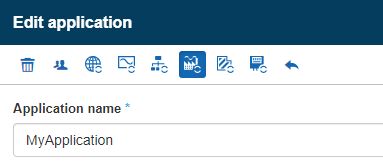
The Synchronize Sites button
Clicking this button opens the Synchronize Sites panel. On the first use, the list of Sites is, by default, empty.
To add items to the list, the user can click the Add toolbar button. Sites can be selected for synchronization, from the Select Sites panel.

The Select Sites panel
The Select Sites panel lists all the Sites available for the currently logged-in user. To aid users with pinpointing the Sites to be synchronized with an i4designer project, the list features a simple filtering mechanism.
In this view, the user can either individually select some of the listed Sites, or click the Select All toolbar button, to apply the selection to the entire list.

The Select all button
After selecting the desired Sites, the user needs to click the Select button, located at the bottom left side of the Select Sites panel, to add the entities to the Synchronize Sites panel.
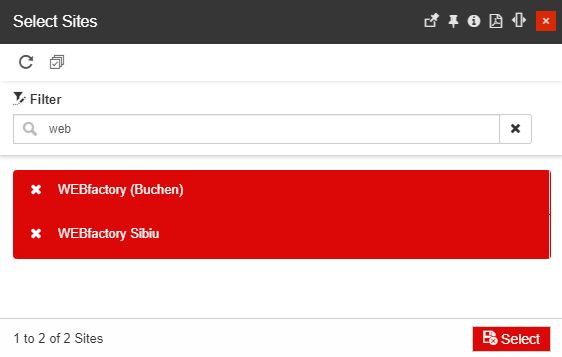
Select Sites for synchronization
Warning
By clicking the Refresh button in the toolbar of the Select Sites panel will remove all your selections, without further notice.
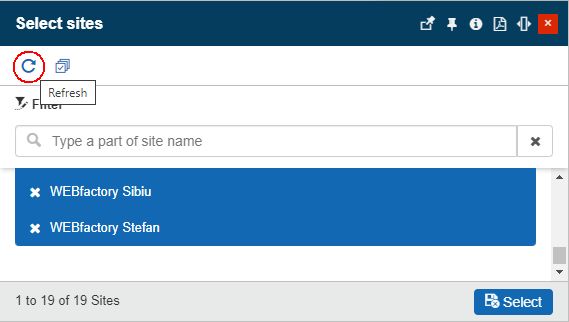
The Refresh button
Once the Synchronize Sites panel is populated with the selected entities, the listed Sites will be accompanied by the Not synchronized icon  , until the user clicks the Synchronize Sites toolbar button.
, until the user clicks the Synchronize Sites toolbar button.
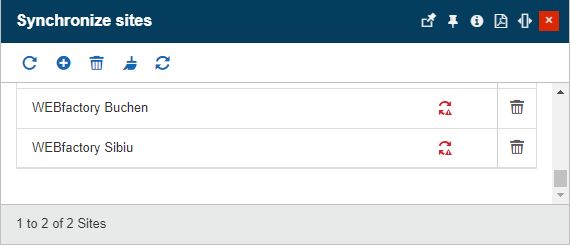
Sites added to the Synchronize Sites list
Important
Unsynchronized Sites will be removed from the list view, if the user does not synchronize the entities, before closing or refreshing the panel.

Actions that can remove unsynchronized Sites
Clicking the Synchronize Sites button parses the list of Sites to the associated i4designer project. Upon a successful synchronization, the  icon is removed and a toast confirmation message is displayed.
icon is removed and a toast confirmation message is displayed.
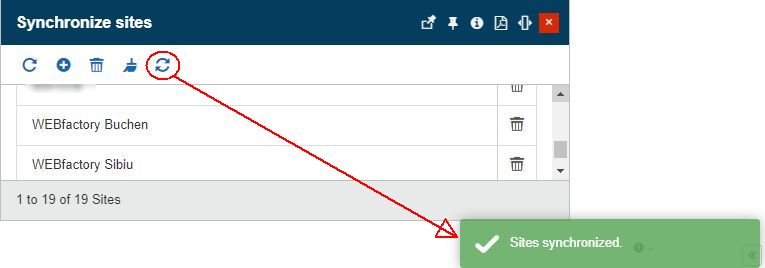
The "Sites synchronized" toast message
Synchronized and unsynchronized Sites can be removed from the list, as follows:
by individually clicking the Delete button of all the Sites that need to be removed.
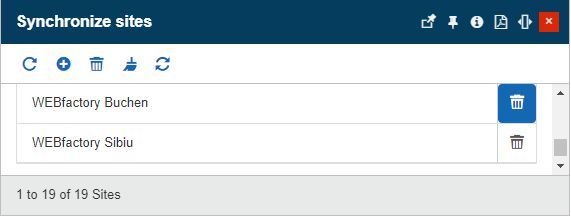
by clicking the Remove all toolbar button, to empty the list.

After removing Sites, the list needs to be resynchronized.
Important
Removing Sites from this view does NOT delete the Site itself.
The Refresh toolbar button can be used, to manually update the list of Sites. However, as earlier indicated, if there are any unsynchronized Sites in the list, these will be removed when using the refresh option.
Further on, users having the Manage Sites and Areas permission enabled, can also open the listed Sites in edit mode, to process further changes.
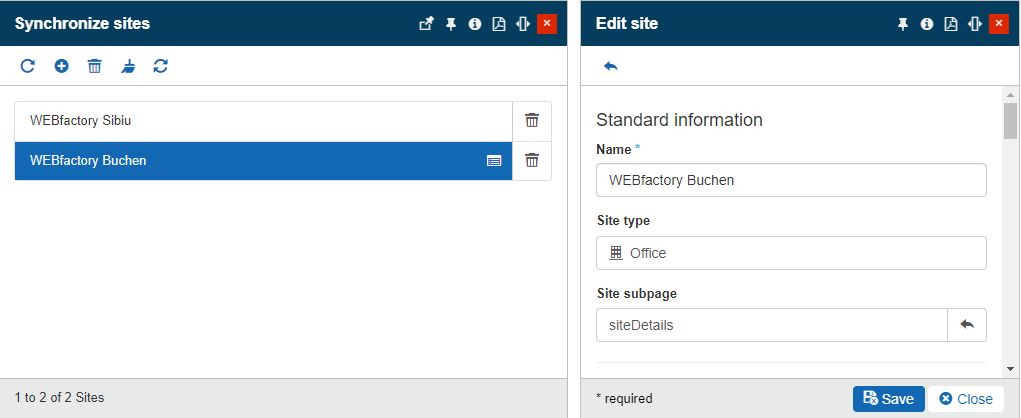
The Edit Sites panel
Tip
For more details about the management of Sites, please also visit the dedicated article, here.
Since the list of Sites considers the security level of the currently logged-in user, some Sites may display the Purged icon  .
.
The Purged icon marks all the Sites that have been previously synchronized with the i4designer project, but otherwise are not accessible for the currently logged-in user.
Since the user cannot synchronize these Sites, with an i4designer project, the user can click the Remove incorrect Sites toolbar button, to clean up the list.
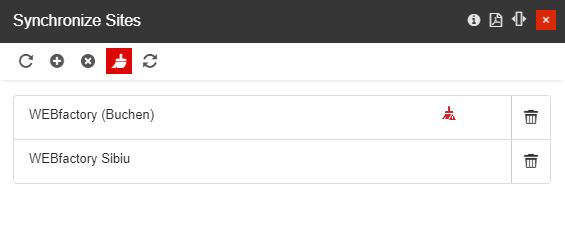
The Remove incorrect Sites button
In case the list contains both incorrect and correct Sites, the user can proceed with the synchronization operation, without being obliged to purge incorrect Sites.
Tip
For more details about the i4designer integration with i4connected, please also visit our online technical documentation, here.